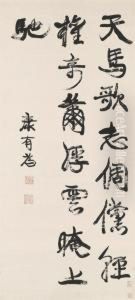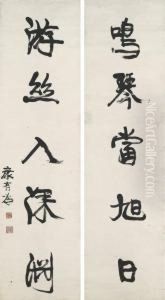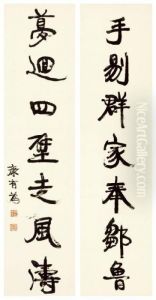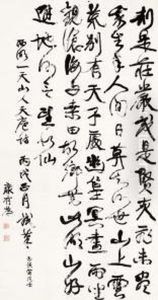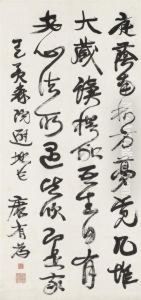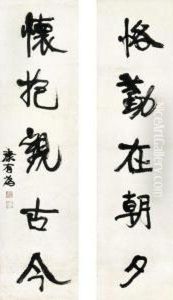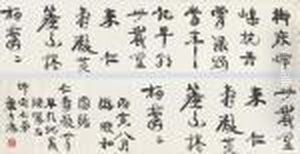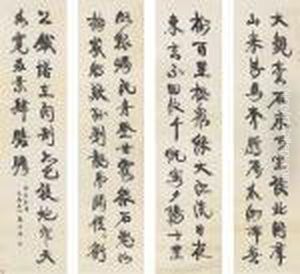Kang Youwei Paintings
Kang Youwei was a prominent Chinese scholar, philosopher, and reformer of the late Qing Dynasty. He is best known for his role in advocating for the Hundred Days' Reform of 1898, an ambitious program of social, political, and educational reforms aimed at modernizing China and saving it from the internal crises and foreign pressures it was facing at the time. Born in Nanhai, Guangdong province, into a family of scholars, Kang was deeply influenced by Confucian teachings from an early age. However, he developed a critical perspective on traditional Chinese thought, advocating for a reinterpretation of Confucianism in a way that would be relevant to the contemporary challenges faced by China. Kang Youwei believed that the essence of Confucianism could be a force for modernization. He argued that Confucius himself was a reformer and that the ancient texts contained wisdom that could help China navigate the complexities of the modern world. This led him to advocate for a series of reforms, including the establishment of a constitutional monarchy, the modernization of the education system, and the promotion of industrial development. His ideas caught the attention of the Guangxu Emperor, who initiated the Hundred Days' Reform with Kang as one of its leading figures. Unfortunately, the reform movement was short-lived. Conservative forces within the Qing Dynasty, led by the Empress Dowager Cixi, saw the reforms as a threat to their power and swiftly moved to end the movement. Kang Youwei was forced to flee China to avoid persecution, spending the next several years in exile. During this time, he traveled extensively, visiting countries such as Japan, India, Canada, and the United States, where he continued to advocate for the reform of China. Kang Youwei’s later years were marked by his efforts to establish a constitutional monarchy in China and his continued advocacy for reform. He founded several organizations and published numerous works, further elaborating on his vision for a modern China. Despite the failure of the Hundred Days' Reform, Kang's ideas had a lasting impact on Chinese intellectual thought and contributed to the eventual collapse of the Qing Dynasty and the establishment of the Republic of China. Kang Youwei died in 1927, but his legacy as a visionary reformer and thinker endures.
